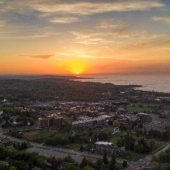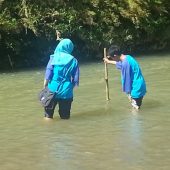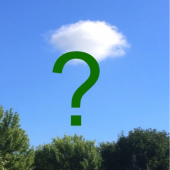
Abstract: Sustainability is a core value of Gen Z and is increasingly a focus of campus strategic plans. Undergraduate survey data can inform campus programming by increasing our understanding of student sustainability behaviors, knowledge, attitudes, and how these relate to student participation in curricular and cocurricular activities. Repeated surveys can track change over time in general and among underserved demographic segments of the student population. Here we evaluate the first in a series of biennial sustainability surveys that will guide planning at a mid-sized midwestern university in the USA. Our survey, modeled after existing surveys, was distributed to undergraduate students at the University of Minnesota Duluth (348 respondents) and collected demographic information including: college affiliation, year in school, gender, race/ethnicity, and campus residence. Our study showed that student knowledge scores were comparable to similar surveys at other institutions (66%) and the average attitude score was very high (88%). However, scores related to sustainability action were strikingly lower, indicating a gap between students’ understanding and acceptance of sustainability concepts and their willingness to engage, which we refer to as value-action gaps. When significant differences were detected between demographic groups, students who self-identified as female were more likely to have a higher sustainability score than students who identified as male and students who lived off campus were more likely to have a higher score than students who lived on campus. Other demographic results were mixed or not significant. We also noted a trend for students to score lower on questions related to business or economic sustainability and, similarly, for business students to score lower on sustainability questions overall than students in other colleges. Based on these baseline results, we provide recommendations to improve sustainability education and address the value-action gaps identified in this survey.
Continue ReadingThe present study examined what undergraduate students thought they knew about climate change, what they actually knew in terms of scientific knowledge, and how these two types of knowledge predicted their pro-environmental intentions and behaviors. We tested these questions using a cross-sectional online survey and data from a subsample of undergraduate student participants who believe in anthropogenic climate change (N = 3,310). Students reported moderate levels of self-assessed knowledge yet objectively lacked an understanding of the causes of climate change. Self-assessed knowledge more strongly predicted pro-environmental intentions and action than actual knowledge. Students’ understanding of the consequences of climate change predicted intentions while understanding the causes and climate science predicted action. Students self-identified a lack of knowledge and a lack of prioritization as barriers to climate change mitigating action. Pedagogical implications are discussed.
Continue Reading
Water cycle literacy attracts great attention to the observers of climate change. Local and global impacts of the water cycle threaten human life and damage the Earth. Education is expected to be able to provide a way out of this problem. A Conservation-Based Learning (CBL) model was employed to understand the water cycle literacy among students in three cities in East Java province, Indonesia. There were 6 (six) Senior High Schools with a total number of 396 students serving as the sample. Each school consisted of common classes and CBL classes. Water cycle literacy aspects included knowledge, values, cognitive behavior, and acting behavior. The data were analyzed using a descriptive quantitative, and qualitative approach. The data were analyzed using a descriptive quantitative, and qualitative approach. The literacy aspect of values, attitudes, thinking, and acting skills in the water cycle in the CDL class is higher than that of the common class. Learning the water cycle using the CBL model gave significant effects on the students’ strengthening of water cycle literacy (sig. 0.5).
Continue Reading
Increased understanding amongst scientists and the general public about anthropogenic impacts in general, and climate change in particular, behooves us as educators to adjust our courses and curricula. “Sustainability” and “green” topics are increasingly being discussed and incorporated, but this should be done with deliberation. We undertook this study to understand attitudes, perceptions, and habits of the student body at Iowa State University, with a focus on environmental knowledge and behaviors. Overall, we found that, regardless of demographic, students appear to be interested in environmental topics, reducing their footprint, and improving the environment overall. But, they did not necessarily want to pay more, nor did they fully embrace personal responsibility.
Continue Reading
In this deeply cohesive and fundamentally geographic argument, Helena Norberg-Hodge brings an impressive array of sustainability issues under a single guiding rubric for educating and changing society—the need for a shift from globalised systems to local practice. While every point in her argument is backed with interesting details—including her fascinating experiences with the Himalayan Ladakhi people—she is consistent in bringing us back to valuing localisation and yet measured in her prescription which calls for gradual shifts, not radical and potentially harmful jumps, towards localisation.
Continue Reading